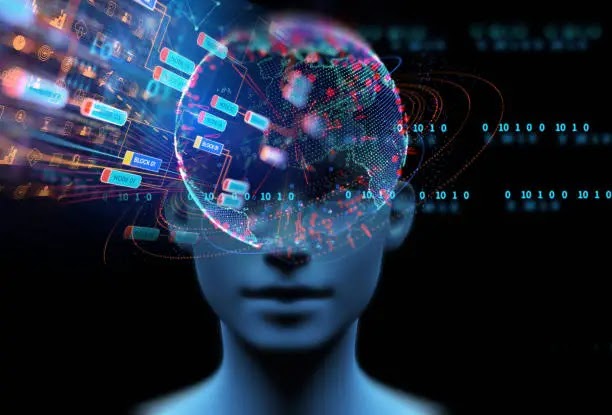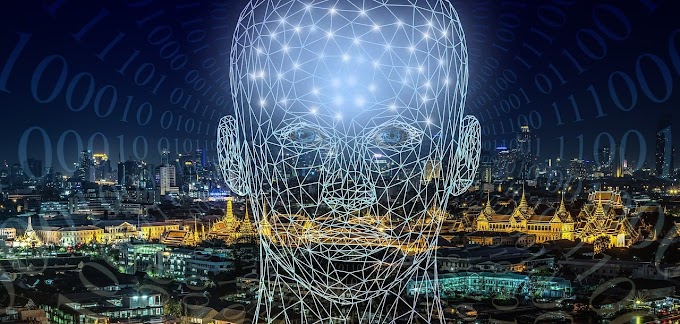Introduction:
Artificial Intelligence (AI) is no longer just a buzzword—it's a technological revolution that's reshaping the United States in profound ways. In this blog post, we will delve into the current state of AI in the United States and explore what the future holds. As the nation stands at the forefront of AI development, there's much to discuss about the economic impact, innovation, challenges, and ethical considerations. Let's embark on this journey into the future of AI.
The Current Landscape of AI in the U.S:
In recent years, the United States has emerged as a global leader in AI. The landscape is vibrant, with a multitude of companies, startups, and research institutions pushing the boundaries of AI technology. Silicon Valley giants like Google, Amazon, and Microsoft are investing heavily in AI research and development.
The impact of AI is pervasive. It spans industries, from healthcare and finance to transportation and manufacturing. For instance, AI-powered healthcare is improving diagnostics and personalized treatment plans, while autonomous vehicles promise safer and more efficient transportation.
Economic Impact and Opportunities:
AI is not just a technological marvel; it's a formidable economic force. According to a report by PwC, AI is projected to contribute $15.7 trillion to the global economy by 2030. In the U.S., it's creating job opportunities, enhancing productivity, and driving innovation.
The transformation extends to traditional industries like manufacturing, where AI is optimizing production processes. In the financial sector, AI-driven algorithms are making data-driven decisions that impact economic stability.
AI Research and Innovation:
The United States houses world-class universities and research institutions that continually produce groundbreaking AI research. Innovation in AI is not limited to the private sector; academia plays a crucial role in pushing the boundaries of what's possible.
Recent advancements in natural language processing (NLP), computer vision, and deep learning have opened doors to exciting possibilities. These developments are driving innovation across various domains, from virtual assistants to image recognition.
Challenges and Ethical Considerations:
As AI's influence grows, so do the challenges. Ethical considerations come to the forefront, with concerns about bias in AI algorithms, job displacement, and privacy breaches. These challenges necessitate responsible AI development and robust regulations.
For instance, bias in AI algorithms can perpetuate inequalities if not addressed. It's imperative that AI developers prioritize fairness and transparency in their systems.
Education and Workforce:
Preparing the American workforce for an AI-driven future is a pressing concern. The skills required to thrive in an AI-centric society are evolving. Individuals must acquire skills like data analysis, programming, and AI ethics to remain competitive.
The U.S. government and educational institutions must collaborate to provide accessible and relevant AI education and training programs.
Government and Policy:
The U.S. government recognizes the strategic importance of AI. It's actively investing in AI research and development to maintain a technological edge. Policymakers are drafting regulations to ensure the responsible and ethical use of AI.
Additionally, AI plays a pivotal role in national security, from intelligence analysis to cybersecurity. The government's investments in AI are integral to safeguarding the nation's interests.
Global Competition:
While the United States is a frontrunner in AI development, it faces competition from other nations, particularly China. This global race for AI supremacy is characterized by intense research, innovation, and investments.
Collaboration and competition on the international stage will continue to shape the future of AI.
The Future of AI in Specific Sectors:
AI's impact on specific sectors is both profound and diverse. In healthcare, AI promises improved patient care through predictive analytics. In transportation, autonomous vehicles offer a glimpse into a safer and more efficient future.
In finance, AI-driven algorithms are revolutionizing stock trading, risk assessment, and fraud detection. In education, AI-powered personalized learning experiences are enhancing student outcomes.
AI and Society:
The future of AI isn't limited to boardrooms and laboratories; it's a transformation that will touch every aspect of society. From smart cities that optimize urban living to AI-driven entertainment and media, the possibilities are limitless.
AI's influence on daily life is already evident, from voice assistants and recommendation algorithms to healthcare apps and streaming platforms.
Predictions and Emerging Trends:
As we look ahead, several trends and predictions emerge. AI will continue to evolve, driven by innovations in quantum computing, federated learning, and AI ethics. It will play a pivotal role in addressing global challenges, from climate change to healthcare crises.
The AI revolution is democratizing access to AI tools, enabling more businesses and individuals to harness its power. The ethical use of AI will be paramount, with transparency, fairness, and accountability at its core.
Conclusion:
The future of artificial intelligence in the United States is a story of innovation, transformation, and ethical responsibility. As AI becomes increasingly integrated into society, it's crucial to prioritize inclusivity, fairness, and the responsible use of AI technologies.
The United States will continue to lead the way in shaping the future of AI, fostering collaboration, and addressing challenges to ensure AI benefits all Americans. As we navigate this exciting journey, we have the opportunity to harness AI's potential for positive change.
Disclaimer: The views expressed in this article are those of the author and do not necessarily reflect the official policy or position of any organization.






